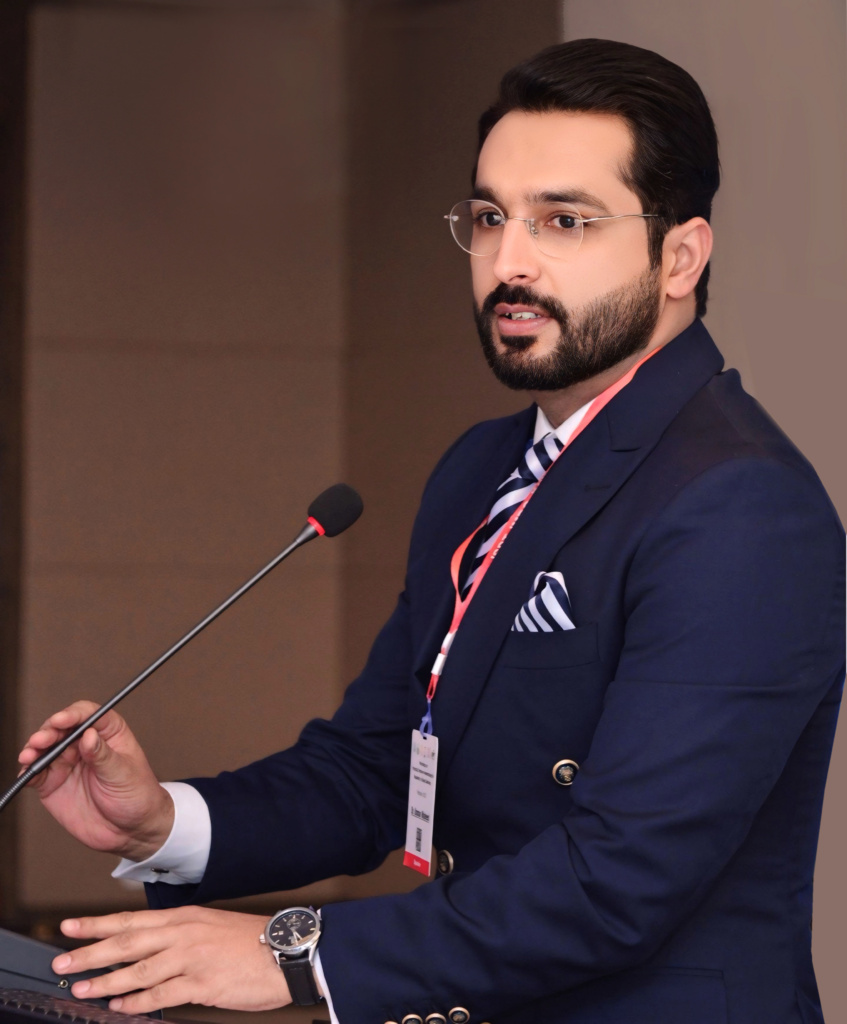
Dr. Usman Waheed, IMDC, Islamabad
Biomedical literature underpins scientific advancement by disseminating critical research to clinicians, academics, and policymakers. However, the integrity of this literature hinges on ethical authorship practices. Authorship is more than a name on a paper, it signifies intellectual ownership and accountability. Yet, under growing academic pressures, unethical authorship practices have emerged, compromising the credibility of research.
The phrase “publish or perish” has become a driving force in academia, especially in developing countries like Pakistan. This pressure often leads to unethical practices such as ghost, guest, and gift authorship, collectively known as the “3Gs,” which distort the true record of scientific contribution.
The International Committee of Medical Journal Editors (ICMJE) has outlined four stringent criteria to define authorship: substantial contribution to the study, drafting or revising the manuscript, final approval of the published version, and accountability for the integrity of the work. Despite these guidelines, the 3Gs remain prevalent in biomedical publishing.
Ghost authorship occurs when individuals who have made significant intellectual contributions are excluded from the author list. This often happens in pharmaceutical-sponsored research, where medical writers draft papers that are published under the names of influential academics to lend credibility.
Guest authorship, also known as honorary authorship, means including individuals who made little or no contribution to the research, often to boost the paper’s visibility or to appease senior colleagues. Similarly, gift authorship is granted to individuals, such as department heads or supervisors, in return for expected professional favors or hierarchical obligation, regardless of their involvement.

In Pakistan, academic promotions in the medical field are largely dependent on the number of publications, often with less regard for quality. This has fostered a culture where unethical authorship practices are common, especially among junior researchers under pressure to publish. Studies have revealed that these practices are not isolated incidents but are driven by structural flaws, including institutional incentives, peer pressure, and hierarchical dominance.
Adding to the complexity is the rise of Artificial Intelligence (AI) in scientific writing. AI tools now assist with data analysis, manuscript drafting, reference management, and even language enhancement, particularly aiding non-native English speakers. While AI offers substantial benefits, its unchecked use raises ethical concerns. If AI generates a large portion of a manuscript, should the tool be credited, and how should this contribution be acknowledged? Moreover, AI is known to fabricate data or references, which can severely damage the credibility of both the authors and the journals.
Pakistan currently lacks formal policies to regulate AI use in scientific writing, making ethical accountability even murkier. There is a pressing need for clear national guidelines to manage the growing influence of AI, ensuring that human integrity remains at the core of scientific authorship.
To address these challenges, a multi-pronged approach is required. First, awareness campaigns and workshops on ethical authorship should be conducted for researchers, academic administrators, and journal editors. Second, Pakistani biomedical journals must adopt ICMJE authorship criteria rigorously, requiring detailed contributor statements that outline individual responsibilities. Third, institutions must implement whistleblower protection policies and enforce clear consequences for misconduct.
Technological interventions like plagiarism detection software, authorship verification systems (e.g., ORCID), and AI-content checkers should be standardized. Most importantly, academic culture must shift from valuing quantity to valuing quality. This involves rethinking the promotion criteria to emphasize the impact and relevance of research, alongside other metrics like teaching excellence, clinical service, and community engagement.
In conclusion, the unethical practices of ghost, guest, and gift authorship, exacerbated by unregulated AI use, threaten the credibility of biomedical research in Pakistan. While international standards exist, their implementation remains weak. Combating such misconduct requires institutional reforms, regulatory oversight, and a culture of ethical accountability. Only by upholding transparency and ensuring that authorship reflects genuine contributions can we safeguard the integrity of scientific inquiry and rebuild trust in academic publishing.
[The author holds a PhD and serving as an Associate Professor of Laboratory Medicine & Managing Editor of two indexed medical journals.]

